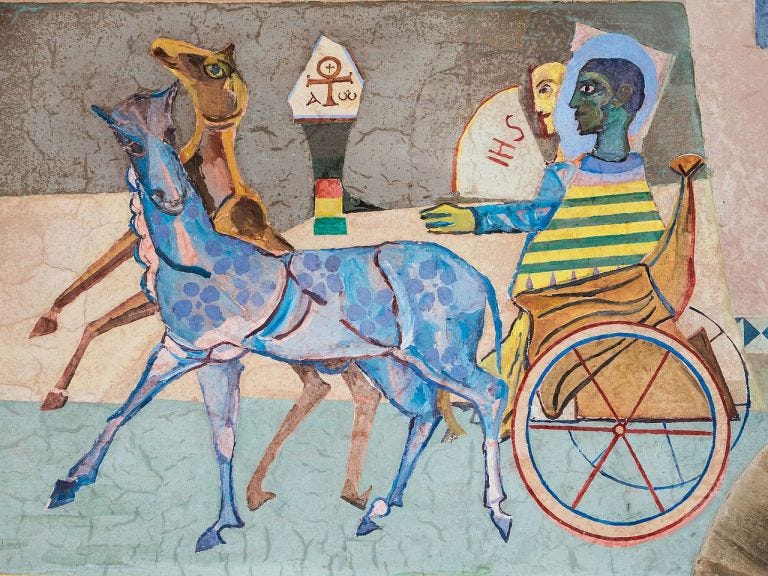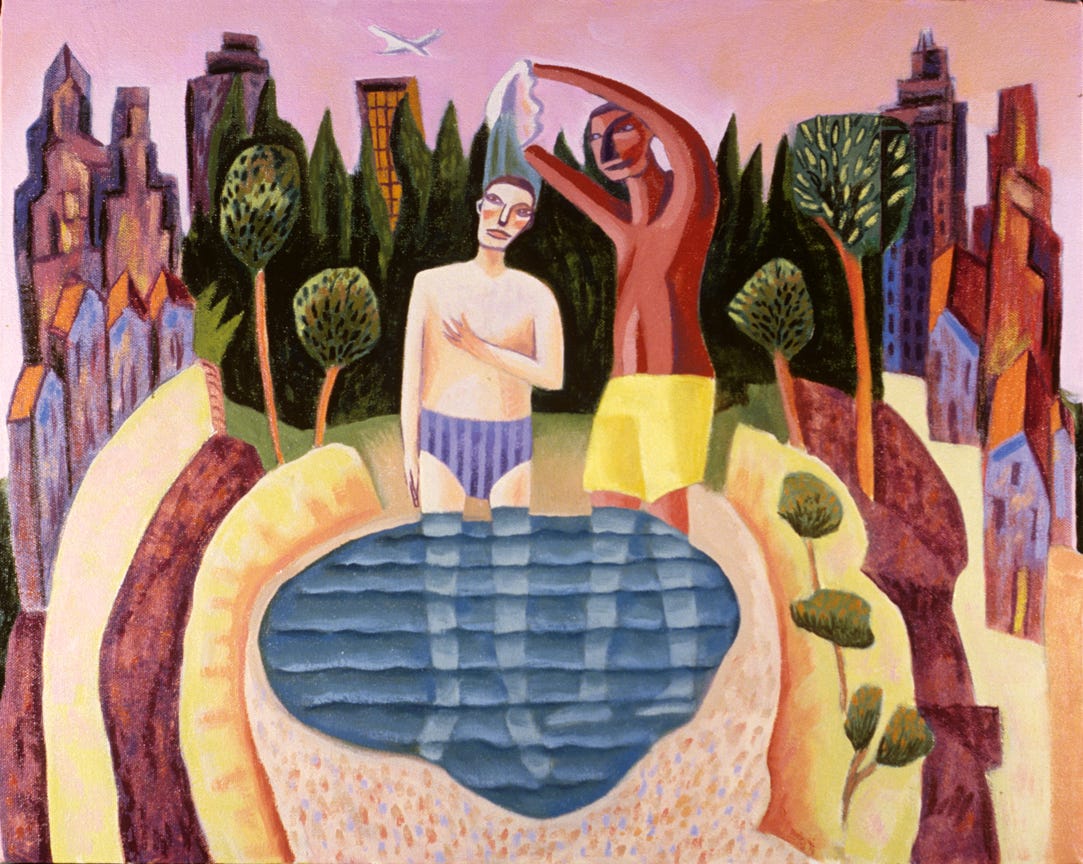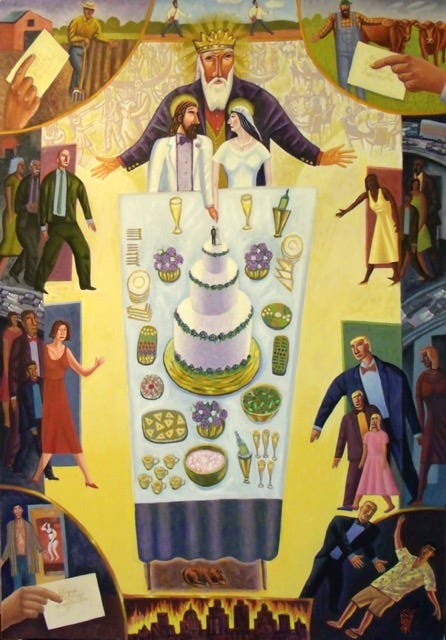Baptism is a turning point and sacred moment in the life of a Christian. It is a sacrament of initiation that signifies a transformative union with Christ. In our baptism, we are “clothed in the righteousness of Christ.”
In the Parable of the Wedding Feast, Jesus vividly depicts God's invitation to join in the eternal celebration of the Kingdom of Heaven. I won’t retell the parable here. You can read my sermon from last Sunday to read my retelling.
Though often enigmatic, the Parable of the Wedding Feast is a powerful teaching on the concept of being clothed in Christ's righteousness through baptism. Just as the king provided wedding garments for the guests, God bestows God’s righteousness upon us through the sacrament of baptism. As Robert Jenson aptly puts it, "In Christian baptism, we are given the attire for the heavenly feast."
The attire provided in the parable symbolizes righteousness, and the wedding garment represents the holiness required for one to partake in the divine celebration. As sinners, we are far from deserving of a place at God's heavenly banquet. Only through Christ's redemptive work are we allowed to be clothed in His righteousness and deemed worthy of God's presence.
Fleming Rutledge writes, "Baptism is the moment when we are wrapped in the righteousness of Christ, which not only covers our sins but also transforms us into new creations." Through the waters of baptism, we are washed clean, justified, and made new, all through the merits of Christ's righteousness.
While the wedding garment is freely provided, the recipient must accept and put on it. In other words, faith is the means by which we appropriate the righteousness of Christ. Will Willimon puts it like this: "Faith is not a mere intellectual assent but an active trust in the righteousness of Christ." In baptism, we respond to God's invitation with faith, accepting the gift of Christ's righteousness and acknowledging our need for transformation.

As we accept the wedding garment of righteousness, we recognize our inability to earn salvation through our own efforts. We cannot work out our own salvation. We embrace the truth that Christ's righteousness justifies and sanctifies us, not our own deeds or merits. This realization fosters humility, leading us to rely on God's grace rather than our own righteousness.
While we believe in one baptism, our baptism is not a one-time event but the initiation into a lifelong journey of discipleship and transformation. Robert Jenson aptly states, "Baptism is our birth into a new existence, a process of becoming more and more like Christ." Just as the wedding garment is a reminder of our need for Christ's righteousness, it also signifies our ongoing need for sanctification.
In this journey, we continue to put on Christ's righteousness daily. It means seeking to conform our lives to the image of Christ and pursuing holiness. We strive to shed the old self and put on the new self, as Paul exhorts in Colossians 3. As the starting point, baptism initiates this process and serves as a reminder of our continual dependence on Christ's righteousness.
In the Parable of the Wedding Feast, it is significant that the guests are not invited to merely wear the wedding garment but to enter into a communal celebration. Baptism unites us with Christ and the broader Church Universal, connecting us with the saints of yesterday, today, and tomorrow. We become part of the body of Christ, called to share in the joys and challenges of the faith journey.
As Will Willimon emphasizes, "Baptism marks our initiation into a community that upholds the righteousness of Christ as its foundation." Being clothed in Christ's righteousness means being part of a faith community that seeks to exemplify and live out the righteousness of Christ in the world. We share in fellow believers' joys, sufferings, victories, and struggles as we journey together in the faith.

Baptism signifies our initiation into the family of God, and the wedding garment symbolizes the righteousness we receive through faith in Christ.
Baptism is not just a one-time event but the beginning of a transformative journey that involves continuous sanctification and communal participation. May we be moved, through the work of the Holy Spirit, to embrace our role in the ongoing process of being clothed in Christ's righteousness and live out this righteousness in the world, bringing light and hope to those in need.






